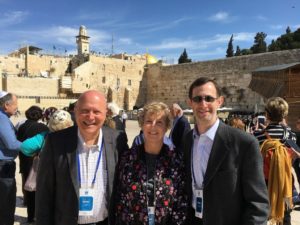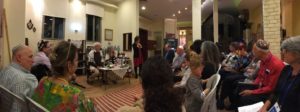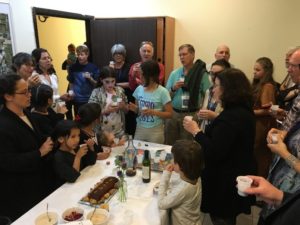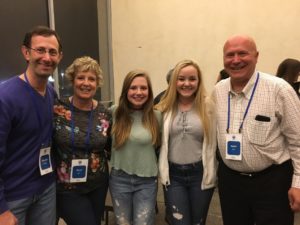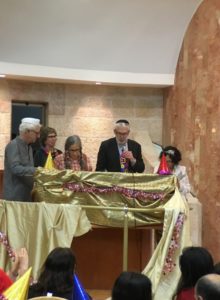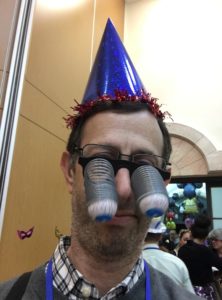Earlier this year, I was fortunate enough to participate in the URJ Leadership Mission to Israel. This trip was a jam-packed, whirlwind schedule crammed into six days filled by meetings with Israeli and Palestinian Authority politicians, leaders in the Reform movement, settlers, Arab businessmen, Reform congregations, former US Ambassador to Israel Dan Shapiro, Natan Sharansky, Reform movement youth, … I’m exhausted just remembering and listing all of the things that we did! The subjects we covered were wide and diverse. Given the variety of meetings, one of the big topics was a multi-sided dialogue on the peace process. However, like the prospects for peace, I’m going to leave discussion on that topic for another day. Today, I want to share my experiences learning about the Reform Movement in Israel.
In addition to the 40+ congregations, the Reform Movement in Israel is represented by three main organizations: The Israel Movement for Progressive Judaism (IMPJ), the Israel Religious Action Center (IRAC), and Hebrew Union College – Jewish Institute of Religion (HUC-JIR). HUC-JIR has a campus in Jerusalem, which has students from the three campuses here in the United States as well as students from Israel. IRAC is a civil and human rights organization addressing issues of religion and state. IMPJ is Israel’s liberal Jewish religious movement and is the counterpart to the URJ. I don’t want to turn this blog post into a class on these organizations, so please click on the links above to learn more about each of these wonderful organizations.
One of the key issues we discussed on the trip is the status of an egalitarian prayer space at the Kotel (Western Wall). This issue has been very contentious over the last several years and is not just an issue for the Reform Movement because it impacts all non-Orthodox streams of Judaism. In January 2016, the Israeli Cabinet reached a historic agreement on the Orthodox and non-Orthodox prayer sections at the Kotel. The full scope of this agreement has not been implemented and the slow progress was one of the topics we discussed with Prime Minister Netanyahu. He told us that the earlier resolution was a big milestone and that this was an important issue to him, but implementation has been difficult with the current governing coalition. A few weeks before our meeting, he asked one of the Knesset members, Tzachi Hanegbi, to lead the implementation efforts for the Israeli Government. We had met with MK Hanegbi a couple of days earlier and during that meeting, he committed to us that he would do what it took to get the agreement implemented. Interestingly, he has a connection to GFC! His son Stav was a staff member a couple of years ago, so he is well aware of the Reform Movement.
Below are some visual highlights of what we did:
Shabbat services at Even Yehuda
Met with Strength of the youth (Mechina participants)
Met with Heller High School Students from GFC and NFTY-TOR (formerly EIE)
Attended a Megillah reading at Kehilat Ra’anan in Ra’anana
The challenges facing the Reform Movement in Israel? They are a minority sect of Judaism – something different than we experience here in the states, which also equates to limited funding. Support is important.
When you do go to Israel, I recommend you do connect with the Reform movement somehow and learn about our incredible movement overseas. Before you go:
- Contact IMPJ offices in advance
- Plan a visit a to a Reform congregation
Michael Solka is a past Camp Committee Chair and a current member of our Camp Committee from Austin, TX. He recently participated in the URJ Leadership Mission to Israel as a representative for URJ camping and GFC.

